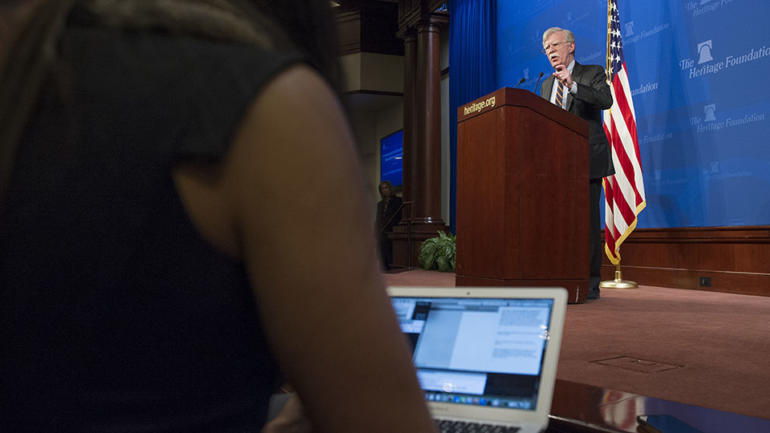The White House unveiled its strategy for engaging Africa, Thursday. And a key pillar is designed to counter the rising influence of China and Russia on the continent.
CGTN’s Jessica Stone reports.
U.S. National Security Advisor John Bolton calls the spending spree by Beijing a wake-up call to Washington.
Africa, he said is strategically important to the United States.
“They are deliberately and aggressively targeting their investments in the region to gain a competitive advantage over the United States,” Bolton said during remarks at the Heritage Foundation in Washington, D.C.
In September, Chinese President Xi Jinping announced Beijing would provide $60 billion in financial support to the continent of Africa. Three years earlier Beijing also pledged $60 billion. China has been Africa’s top trading partner nearly a decade ago and has invested billions of dollars to build roads and railways across the continent.
Bolton said the Trump administration’s new Africa strategy will focus on countering the influence of both Beijing — and Moscow — by increasing bilateral trade and investment in African nations, tying it to responsible use, and leveraging it to prevent terrorism.
African government officials who attended tell said they are glad that Washington recognizes the engagement the continent sees from other world powers, with one saying it appears Washington has “woken from its slumber.”
But African officials also said there are too few details in the strategy to know what’s on offer from the White House.
“There is opportunity for a void that was left there in Africa for a long time and I think there is an opportunity at least now America understands and has a better strategy that is purposeful in engaging in Africa,” David Kahiro Gacheru, deputy chief of Mission for the Kenyan Embassy to the U.S.
Yet, Washington has made one key move towards making it easier for U.S. business dollars to flow to Africa. Last month, the U.S. Congress passed the BUILD Act. It combines several agencies into one to invest up to $60 billion into developing countries — including for the first time — equity investments. Experts said incentivizing American companies to lend in Africa serves two purposes: counter-terrorism and market access.
“The last thing you want in Africa is a series of failed states on the continent but also growing at a point market for the United States and the West,” said Nile Gardiner, a British commentator and director at the conservative Heritage Foundation.
 CGTN America
CGTN America
 National Security Advisor John Bolton unveils the Trump Administration’s Africa Strategy at the Heritage Foundation in Washington, Thursday, Dec. 13, 2018. (AP Photo/Cliff Owen)
National Security Advisor John Bolton unveils the Trump Administration’s Africa Strategy at the Heritage Foundation in Washington, Thursday, Dec. 13, 2018. (AP Photo/Cliff Owen)
